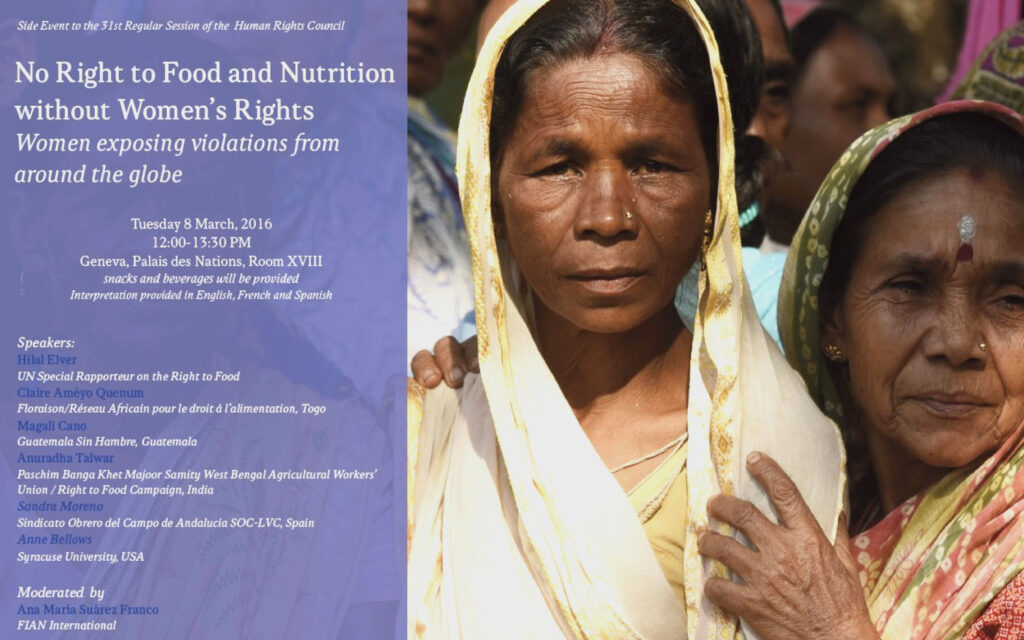The current economic and development model encourages a food system dominated by agri-business; a system which exploits people, natural resources and exacerbates social and gender inequalities. Local communities are displaced, workers are exploited, rural populations are forced to move to the city as they are faced with unpunished land-grabbing. While States rely increasingly on foreign investment and transnational corporations, they are becoming less inclined to comply with their human rights obligations, leading to unregulated and unsustainable development projects. Coupled with cultural patriarchal practices, this economic model works against women’s equal enjoyment of their rights, and often condemns them to violence. To overcome these structural barriers and violence, women are organizing and advocating for their rights, including the right to food and nutrition, at diverse levels and in all regions of the world.
On March 8, 2016, on International Woman’s Day, Franciscans International (FI) joined a group of NGOs and civil society partners, including FIAN (Food First Information Action and Network), in creating a space at the UN Human Rights Council in Geneva to give visibility to specific violations related to the right to adequate food and nutrition. A panel of women’s rights activists from social movements around the world and the UN Special Rapporteur on the Right to Food shared the struggles they’ve encountered in accessing adequate food.
From appalling work conditions for women workers in tea plantations in India, to desperate migration in Togo where phosphate mining and land grabbing have displaced entire communities; from the invisibility of women peasants’ work in Spain, to under-nutrition and healthcare discrimination in Guatemala, these women’s stories illustrated not only the gross inequalities that women suffer from, but also the need for greater accountability from States and from transnational corporations to uphold women’s human rights.
The women’s stories also underlined the interconnections between the right to food and women’s rights. For example, women are often reduced to being families’ main providers of food security and nutrition, based on stereotypes about gender roles. This often results in stark inequalities in access to productive resources and to economic opportunities. But women are much more than mere providers of food, and their rights are key in addressing the right to food. “Women, whether they are peasants, plantation workers, fishers, pastoralists or indigenous, are already challenging the dominant economic and development model and risking their lives to claim their rights,” noted FIAN’s Secretary General, commenting on International Women’s Day.
The testimonies of these women echo and strengthen FI in its continued efforts to call for a legally-binding treaty on business and human rights. One of our most basic rights – the right to adequate food, especially for women – is threatened daily by today’s global economic system. States and transnational corporations must be held legally accountable for protecting communities’ most basic rights.

